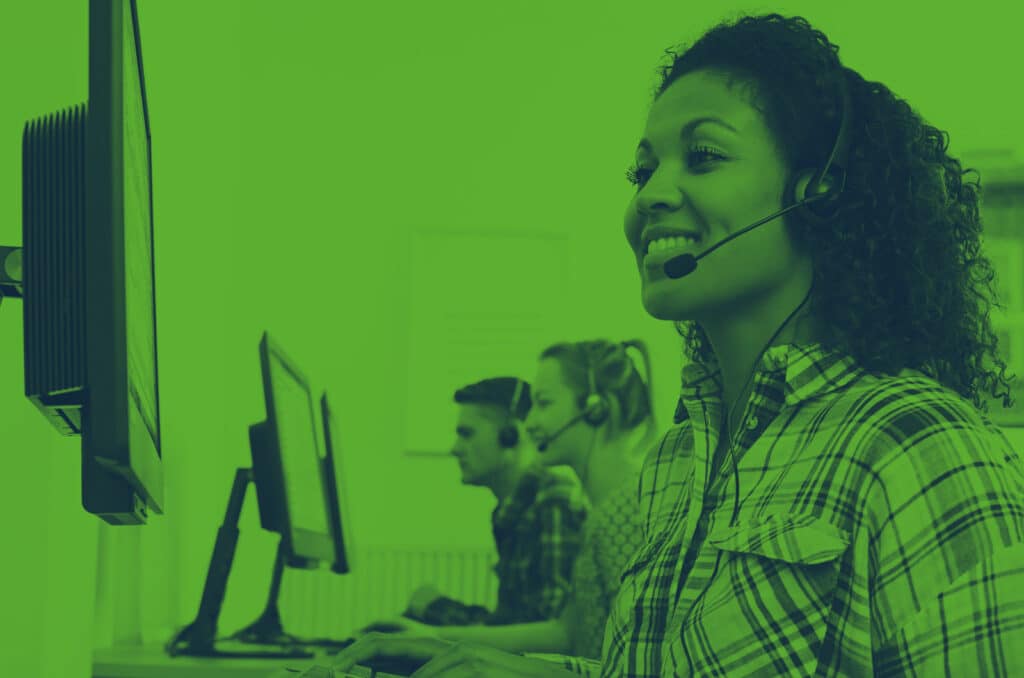Counselling is an increasingly popular profession, and it’s easy to see why: it’s incredibly rewarding, it offers flexibility and a great work/life balance, and there’s plenty of room for career progression as well as the pursuit of interesting specialities. There are many routes into counselling, depending on what type of therapy you’d like to provide, and whether you want to work self-employed or for an organisation such as the NHS. However, all trained counsellors need both theoretical knowledge and practical experience before they can begin working in an official capacity. Why? Because learning how to apply counselling theories in practice takes time, and steps are in place for the protection, well-being, and safety of your future clients. But how can you find counselling work experience when you’re doing an online course? There are several routes you can take to secure the valuable, face-to-face training that all counsellors need, and we’ve outlined the best ones below, as well as why this step is so crucial.
What does a counsellor do?
Before we get into that though, let’s run through exactly what working as a counsellor entails. Counsellors (sometimes called therapists) are qualified and licensed mental health professionals working with patients and private clients for the purpose of their well-being. They help people with a range of mental health conditions and emotional struggles through talking, listening, and helping them to develop healthy coping mechanisms. In that respect, counselling is an alternative to medication, though it can be used alongside treatment prescribed by medically trained psychiatrists. People who seek counselling might be dealing with depression, anxiety, obsessive-compulsive disorders, eating disorders, trauma, addiction, and stress, plus many more mental afflictions. For this reason, expert care and understanding needs to be applied when talking to them about difficult and emotionally triggering subjects for their own well-being. That’s where experience comes in handy!
Why is experience so important for counselling roles?
One of the main reasons it’s so essential you gain some form of experience before or whilst you gain counselling qualifications is so that you can be certain this career is right for you. Dealing with people who are very emotionally distressed, or who have been through traumatic experiences, can also be difficult for the therapist. Therefore, a counselling role is not for the faint of heart. Just as it’s crucial that medical students make sure they can stand the sight of blood before they begin working in a hospital, so too is it essential that budding counsellors can deal with raw emotional wounds. Another reason experience is important is so that you can deal with a wide range of people. If you’ve many friends, you likely communicate in a slightly different way with all of them, depending on their temperaments and personalities. Working as a therapist is similar, and it’s important you hone your communication skills by speaking with as many different people as possible if you’re to be a successful counsellor who truly connects with your clients. Lastly, practical experience can give you valuable insight into what kind of speciality you might like to pursue. For instance, if you find yourself interested in interpersonal relationship struggles, you might decide to train as a marriage counsellor. If you like speaking with young people, you might choose to look into educational counselling.
Where to gain counselling experience
If you’re interested in a career in counselling, the good news is that there are a few ways you can gain valuable, hands-on experience either before or during your studies.

Volunteer for a mental health charity
There are some great mental health charities in the UK doing amazing work! They usually offer a phone service helpline, but sometimes a live messenger service or online counselling, too, helping those who need immediate support. Whether it’s listening, offering reassurance, or directing people to professional help to avoid harm to themselves or others, mental health charities go above and beyond to be there for those in need. Mind UK, PAPYRUS, and Samaritans are just a few of the well-known charities offering free, confidential mental health support to anyone feeling negative, overwhelmed, or suicidal.
Contacting charities or agencies directly is the best way to find out if they offer volunteering, placement, or training opportunities. You can also ask them about the kinds of support and supervision they provide volunteers with, so you can use this as evidence of practical work. However, it’s important to note that volunteering for a helpline does not give you direct counselling experience, and there are strict rules to follow because you won’t be qualified to give professional advice. What it does do is provide a chance for you to immerse yourself in a ‘helping’ role, talking to people about the kinds of problems that are raised in counselling situations. For a wider range of volunteering opportunities that are local to you, have a look at do-it.
“I've learned so much about life and people. It's humbling and rewarding to be able to help in some small way by being there for people who need us.”
~ Lynsey, Samaritans volunteer
Register with a counselling association
Registration with a counselling body, such as the ACCPH (Accredited Counsellors, Coaches, Psychotherapists and Hypnotherapists) or BACP, means that you’ve achieved certain criteria for training, practice, and ethics to gain professional recognition in counselling. The levels of membership vary, but you’ll be able to create a public profile which will verify your qualification status. From here, you’ll have access to a wide range of counselling resources, training, and connections with other qualified counsellors, ideal for finding unpaid training and placement opportunities!
Find experience to enhance your soft skills
In counselling, soft skills are equally as important as the professional training you’ll develop while studying. So, anything that helps you communicate better, participate in active listening, and develop empathy, will be beneficial to your counselling career. Soft skills are classed as the ability to interact effectively with people, helping you to develop high emotional intelligence and enabling you to form strong relationships and connections. For example, someone who is a good listener not only hears what’s being said but pays attention to that person’s tone and body language, thinking about the context of the conversation and why it matters. Another valuable soft skill for counsellors is the ability to self-reflect with critical awareness, notice your own emotional state at different times throughout the day, and understanding what to do to maintain well-being. By thinking and feeling fully within one’s self, the theory is that counsellors can better empathise with clients because they have mental clarity. You can work on this independently, though many counsellors go to therapy to deal with their own emotions, as well as to experience what it’s like to be in the other chair. Life experience is extremely valuable for a career in counselling.
Look for an apprenticeship
While some college and university courses have placements built into their course framework and they partner with local counselling organisations to facilitate this, online students must proactively find placement opportunities themselves. That being said, most counsellors understand that work experience is a crucial part of the career, as they’ve had to complete it themselves, and so they’re willing to accommodate to help those in training. The best thing to do is reach out to local private counsellors and ask if you can do an apprenticeship with them, shadowing their sessions, observing their role, and taking on some responsibilities. Aside from this, you can also use the government’s find an apprenticeship tool regularly to keep your eyes peeled for opportunities in your area.

Is a career as a counsellor right for you?
To get a little more insight into what kind of person is most suited to this career, we asked a qualified counsellor to give her opinion. This is what she had to say: “Lots of people will ask me, ‘what do I need to do to become a counsellor?’ and I tell them all the same thing; before you begin any training, start working on yourself. The most important quality a counsellor needs is empathy. You’ll really need to be able to understand where your clients are coming from and be patient if you don’t make progress as quickly as you’d like. Secondly, you’ll need to be pretty emotionally stable and resilient. If your client is telling a terrible story from their past, they certainly won’t mind if you shed the odd tear with them, but they’re relying on you to keep strong while they expose their weaknesses, rather than turn into a blubbering heap. Thirdly, you’ll need to be open-minded. Believe me, people will tell you all kinds of things, and will (rightly) expect you not to judge. You’ll also encounter all races, religions, and sexualities, so this career is certainly not for anyone who holds any kind of prejudices. Finally, you’ll need excellent communication skills. Thankfully, this is something most people can easily develop, simply by making an effort to tune in more to the people around them. Make an effort to ask your friends and family how they’re feeling, and if they have a problem, really listen to them and make the effort to connect.”
Sound interesting? You can check out our range of counselling courses here, or give one of our experienced course advisers a call on 0121 630 3000. We’re here to help whenever you’d like to take the next step.
